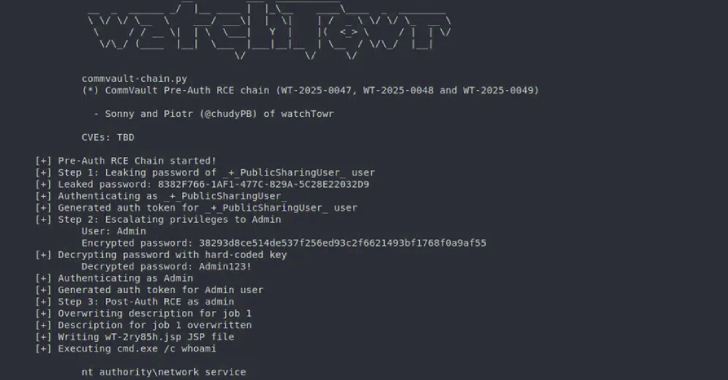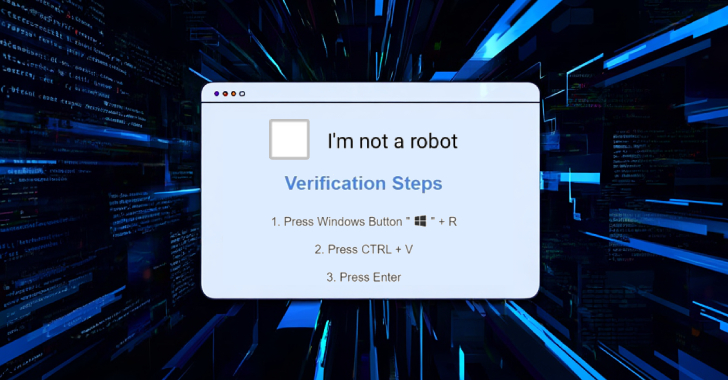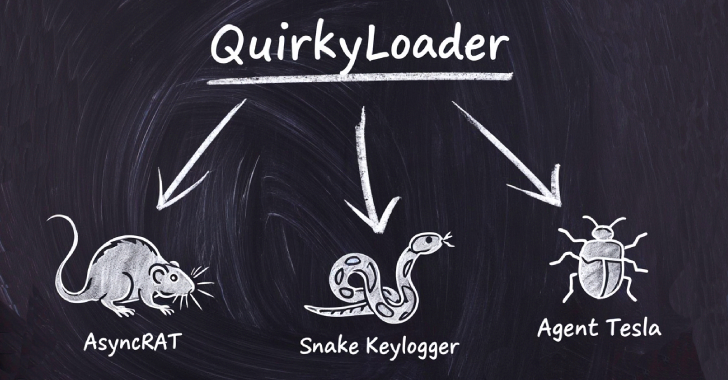Pre-Auth Exploit Chains Found in Commvault Could Enable Remote Code Execution Attacks
Commvault has released updates to address four security gaps that could be exploited to achieve remote code execution on susceptible instances. The list of vulnerabilities, identified in Commvault versions before 11.36.60, is as follows – CVE-2025-57788 (CVSS score: 6.9) –




















